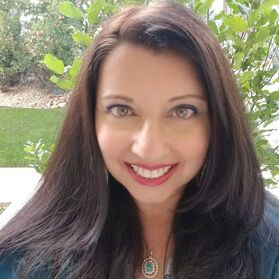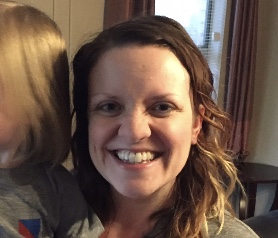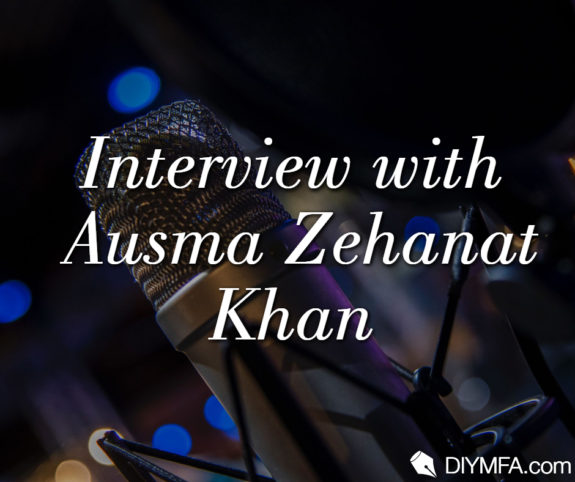[Editor’s Note: As a part of DIY MFA’s ongoing missions to promote unique voices, regular columnist, Sara Farmer, has been conducting a limited series of interviews featuring authors with unique and diverse voices. You can check out her past interviews of Silvia Moreno-Garcia and Marcie Rendon.]
About Ausma Zehanat Khan

Ausma Zehanat Khan is the author of The Unquiet Dead, published by St. Martin’s Press/Minotaur Books, and winner of the Barry Award, the Arthur Ellis Award and the Romantic Times Reviewers Choice Award for Best First Novel. Works in her critically acclaimed Esa Khattak/Rachel Getty mystery series include The Language of Secrets, A Death in Sarajevo, Among the Ruins, and A Dangerous Crossing. In A Deadly Divide, the fifth and latest book in the series, Detectives Khattak and Getty investigate a mosque shooting in Quebec, and explore the after-effects of a rising tide of Islamophobia in both the province and the nation. CrimeReads named Khan one of the Rising Stars of Crime Fiction in the 2010s, and both CrimeReads and Library Journal named A Deadly Divide one of the best crime novels of 2019.
Khan has been featured in a Shondaland profile of Muslim Women Authors Everyone Should Know, and as Ms. Chatelaine in Chatelaine magazine. Most recently, she was profiled on Public Radio International. She frequently appears on CBC Radio, and has been interviewed by the BBC World Service and BBC Radio Woman’s Hour, as well as appearing on CTV Your Morning, CBS and The Agenda.
The Bloodprint, Ausma Zehanat Khan’s fantasy debut, has been hailed as “one of the year’s finest fantasy debuts”. Published by Harper Voyager US & UK, The Bloodprint is Book One of The Khorasan Archives, a four-book epic fantasy series, that was followed by The Black Khan in October 2018, and The Blue Eye in 2019. In 2019, Khan was a Sirens Guest of Honor. The Bladebone, the epic conclusion of The Khorasan Archives will be published in October 2020.
Khan’s non-fiction book, Ramadan, for middle-grade students, was published by Orca Books as part of the Origins series in Spring 2018. It was selected as a Children’s Book Council Notable Social Studies Trade Book for Young People 2019, and as the Children’s Literature Roundtable of Canada’s 2019 Information Book Award Honour Book. Ramadan has also been nominated for a Hackmatack Children’s Choice Award.
Khan’s nonfiction essay, “Origins and Destinations”, was published by Seal Press in the crime writers’ anthology, Private Investigations, edited by Victoria Zackheim, in 2020. She also has the short story, “The Once and Future Qadi”, forthcoming in the Sword Stone Table anthology.
A frequent lecturer and commentator, Khan holds a Ph.D. in international human rights law with a research specialization in military intervention and war crimes in the Balkans, from Osgoode Hall Law School. She completed her LL.B. and LL.M. at the University of Ottawa, and her B.A. in English literature & sociology at the University of Toronto.
Formerly, she served as Editor in Chief of Muslim Girl magazine. The first magazine to address a target audience of young Muslim women, Muslim Girl re-shaped the conversation about Muslim women in North America. The magazine was the subject of two documentaries, and hundreds of national and international profiles and interviews, including CNN International, Current TV, and Al Jazeera “Everywoman”.
Khan practiced immigration law in Toronto and has taught international human rights law at Northwestern University, as well as human rights and business law at York University. She is a long-time community activist and writer, and currently lives in Colorado with her husband.
You can find Ausma on her website, Twitter, Instagram, and Facebook.
Sara Farmer: Before reading the first Esa Khattak and Rachel Getty book, The Unquiet Dead, I didn’t know the depth of the atrocities in Bosnia in the 90s. I was a teenager and heard about it at the time, but for one reason or another I never got the details or they never sunk in. I’ve noticed the power of historical fiction, including mysteries, to bring events to life and cement them in the reader’s mind. Was that part of your intention for the books in this series? I have learned so much from them and it’s been fascinating.
Ausma Zehanat Khan: Thank you so much. Yes, very much so. Historical events tend to lose their power and significance over time and with the dissolution of Yugoslavia and the Bosnian genocide, in particular, not many of us now know the scope of the crimes that took place in the early to mid-90s. Often, events as tragic and large-scale as a genocide are too overwhelming to comprehend. So, telling an intimate story through the lens of characters readers can connect with gives real-life tragedies an immediate personal resonance. And I hope that makes both the story and event it is inspired by truly matter, particularly as human rights crises continue to emerge all around the globe. I could point to the cultural genocide of the Uyghur people in China or the Rohingya genocide in Myanmar. Or the equally pressing Syrian refugee crisis, whose urgency has not abated in all these years. I haven’t written about all these subjects, but I think fiction is a beautiful means by which we can broaden our understanding and deepen our empathy.
Sara: I love the layers of historical and cultural details in all of the books and how they are worked into the mysteries, especially the poetry in The Language of Secrets. And Khattak and Getty are great characters and a wonderful pair. How do you research and write such intricate plots and complex characters?
Ausma: Thank you so much for these kind words! I’m trying to think where I should begin. I will say that The Unquiet Dead and The Language of Secrets were different from my other books in terms of my research process. The Unquiet Dead was both easier and harder for me to write in some ways than the following books in the series. This is because it was based on a decade of academic research that I had pursued in my graduate studies. My dissertation on military intervention and the Bosnian genocide was also entitled “The Unquiet Dead.” So, I had a solid foundation of research to build on in writing my debut novel, though I did have to refresh my knowledge.
I also found it painful because those memories and voices that represent the victims of a genocide never really leave you and I wanted to do justice to my ambition in telling a small part of that story. The Language of Secrets, again, was an easier book for me to write, because I only needed to do short-term research on radicalization and terrorism, the subjects of the book. But in terms of the cultural aspects – the language, poetry and traditions involved – they are all part of my own upbringing and are as natural to me as breathing. So, the themes of Secrets have been ever-present in my life and development—they shaped me as a human being, and in some ways the writing was a natural extension of that.
With the subsequent books, the research has been very intense! Sometimes I’m fortunate enough to be able to travel to the places I’m writing about, but usually I read for about six months on the subject that interests me. I view documentaries and interviews, read hundreds of news articles, and then I conduct personal interviews with experts on the subjects I write about. I try to incorporate a wide range of perspectives on something like the Syrian refugee crisis, for example, which is the subject of A Dangerous Crossing. And then I leave the reader to come to their own conclusions.
To answer your question about characterization, I write the kind of characters I love to read. Interesting, many-layered, complicated, flawed, but always determined to do better and to make a difference in the world. I love characters who demonstrate genuine warmth, even if it’s a journey to peel back the layers of the characters to get to the heart of that warmth. Esa Khattak, my lead detective, is a bit cerebral, but as the series progresses, I do my best to unwrap him so you get to the compassionate heart of him. Rachel Getty, his partner, is brasher and less certain of herself, so I focus on building her competence and her self-confidence. Characters like these are truly a joy to write.
Sara: Do you find that your academic and legal background helped prepare you for writing fiction? Have you always been interested in writing fiction?
Ausma: Yes, absolutely. Because of that training, I’m able to sift through research very quickly to determine what’s of real consequence and find information that is central to my storytelling. Legal training is also logic-driven, which is so useful in writing crime fiction, because your clues have to add up and your ending has to make sense to readers. It’s almost like presenting the evidence in a criminal case to secure a conviction.
Also, academia and legal practice involve a huge amount of thinking, reading, and writing—which is exactly the same process a novelist goes through. Of greater significance for me, though, is that my novels are essentially a continuation of my legal work. My work has always centered on human rights and writing crime novels is just another way of telling those stories—I hope with immediacy and relevance.
I’ve been writing fiction all my life—stories, songs, plays, poems. I was the newspaper editor at my high school and wrote columns for the local paper, as well as articles for my undergraduate newspaper. For a while, I thought I might end up more on the nonfiction side as a journalist and I do still continue to write nonfiction essays, but invention is my true passion. I love all forms of storytelling, so I’m hoping to find ways to expand my range.
Sara: The theme of the lasting effects of violence in war and in families runs through the series. One example of this ripple effect is the tension in the immigrant communities between those out for revenge and those opposed to violent extremism. This is beautifully rendered both between opponents and as an inner struggle for some characters. It seems that Khattak understands the forces that drive some to murder and extremism, but he does not condone violence from terrorists or the countries whose brutality helped spark this desperate anger. You depict the typical Muslim community as full of so much love and steadfast faith. I really felt their frustration at the perversion of their religion, being blamed for what a small group does, and the radicalization of vulnerable young people. What kind of feedback have you gotten from readers about this aspect of the Muslim community? Have you ever experienced pressure to move away from these topics or to simplify them?
Ausma: This is an excellent question—I’ll try to do it justice. Most of my readers are not Muslim—a surprise to me, too. But from my Muslim audience I’ve had such honest and positive feedback that it humbles me. So many people were simply hungry to see a character like Detective Esa Khattak in fiction—decent, compassionate, full of integrity, relatable, charismatic. That hunger exists because the Muslim male typically depicted in popular culture—including in a whole slew of political thrillers—is so often a woman-hating terrorist with nihilist convictions. Faith is an ugly thing for characters written in that mold. And to our communities, those kinds of depictions read as wholly inauthentic—they’re cruel and dehumanizing and they cause untold pain. So, I haven’t had any requests to move away from these subjects from the Muslim community, quite the opposite. People suggest other topics that they’ve been wanting to see either accurate representation on or any representation on. My one detective can’t be all things to all people, but I hope he’s a good start and that many more will follow.
On the whole, my non-Muslim audience has also been incredibly generous—responding to my books with interest and warmth and a genuine desire to dig deeper. That’s been really heartening for me to see as a writer who spends a lot of time in very dark places, researching and writing about the worst of the human experience. So, my readers have been a blessing for me—holding out a hand, offering me encouragement when I need it.
But in terms of simplifying the things I write about, there are always people who want you to simplify complex issues, those who engage in “what-about-ism,” so they don’t have to grapple with the issue or themes I am writing about with any kind of honesty. Those whose view of the world is a binary black or white. When Secrets came out, some readers insisted on knowing where I was from, as if identity is ever so simple or easily reducible. If I was American, I might have been acceptable to those readers, but most likely not. If I wasn’t American/Canadian, etc., then I had an agenda and therefore no right to write this book or to speak about its themes.
Sometimes, if you respond with gentleness and patience, you can reach people who hold these kinds of opinions and engage in a discussion that ends with them not entirely discounting your humanity. But, regrettably, I’m not always patient and gentle and I often have much more important battles to fight or more important subjects on my mind. Just because I write about the politicization and demonization of Muslim identity, that doesn’t mean I’m always on call to explain it or defend it—the notion of me having to do so encapsulates everything that is wrong with our politics.
So, I refuse to simplify complex subjects, themes, or characters. Just as I refuse to reduce my own identity, which is very much entwined with my fiction. I come from a multilingual, multicultural home, history, and heritage. Simplifying any part of that is inauthentic and reductive and if there’s one thing that matters to me in my work, it’s my own integrity. I have a responsibility to myself, my family, and the communities I come from to represent our full humanity and complexity in the stories I tell.
You’ll see from the length of this answer that I’ve dealt with a lot of criticism, negativity, coded reviews, and outright hate on this subject. Social media can be a negative experience for me if I don’t carefully monitor and control my expression in those spaces.
I will tell you that because its subject is terrorism, The Language of Secrets is my most hated book. (I’m shaking my head at myself here.) Why so hated? Because the book looks at the root causes of historical grievances, as well as the continued political engagement between what I will loosely call the West and the Muslim world, engagement that has been devastating for the citizens of many Muslim-majority societies. You won’t find language like, “They hate us for our values,” in my books because that presumes an irrational, unknowable enemy who strikes without reason or cause. You will find out the historical causes of legitimate protest. You will also find Esa Khattak, my practicing Muslim detective, saying that violence against innocents is never justifiable—and that includes all the innocents on both sides of a divide. It would be impossible to simplify any part of that, so The Language of Secrets is a speaking back to the facile, often racist, association between Muslims and terrorism—racist because it assumes and assigns collective guilt. These are assumptions we would never make about any other community.
I’m glad, though, that Secrets provoked these kinds of conversations and forced some people to examine their own assumptions, but I’m even more grateful for the community of readers and writers who don’t make assumptions like these. They have been a source of solace through my writing journey.
Sara: I like to ask all my interviewees – how long did it take you to write your first book? Do you have drawer novels?
Ausma: I like to say The Unquiet Dead took a decade of research and a year to write, lol. And I definitely have drawer novels—half-written or abandoned. But I also wrote a prequel to The Unquiet Dead, where Esa and Rachel first meet, which hasn’t been published. These days though, I’m consciously trying to work on things I’m fiercely committed to, in the hopes they’ll see the light of day.

Sara Farmer lives in Austin, TX, with her husband, three kids, and two cats. When she’s not chasing kids and cats, she reads and writes mysteries. You can find her at www.kittymomma.com and on Twitter @avonlea79.







